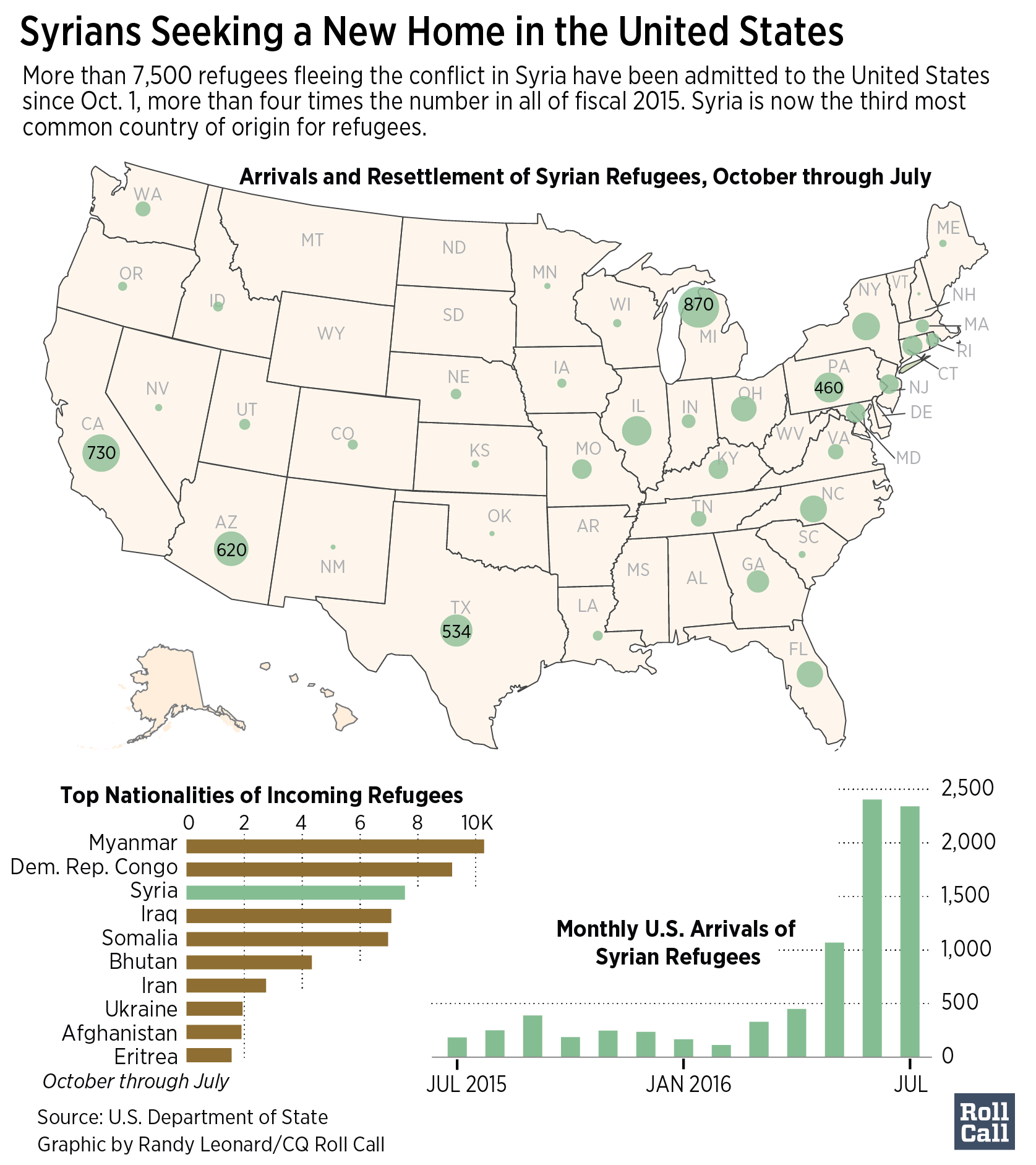
MOBILE, Ala. — A new analysis of Syrian refugee relocation in the United States reveals that no such refugees have been placed in Alabama, in spite — or perhaps because — of vocal concerns from citizens and lawmakers and a court battle between the Yellowhammer State and the federal government.
“More than 7,500 refugees fleeing the conflict in Syria have been admitted to the United States since Oct. 1,” explains Roll Call, a Washington, D.C.-based political magazine, “more than four times the number in all of fiscal 2015. Syria is now the third most common country of origin for refugees.”
But the Obama administration’s decision to increase the flow of refugees has not yet directly impacted Alabama.
According to the U.S. State Department, more than 100 Syrian and other Middle Eastern refugees were previously slated to be housed by Catholic Social Services (CSS) in Mobile.
Though the CSS is part of the church’s Archdiocese of Mobile, the program is completely funded by federal tax dollars. CSS volunteer outreach coordinator Erin Dunn told Yellowhammer last September they were equipped to provide assistance to up to 130 new refugees in the coming year.
“We work with them for about six months to help them become self-sufficient,” explained Dunn. “We have various programs that our case managers walk them through, and we have a job developer that helps them find jobs, and case managers work on connecting them to local resources… As volunteer outreach coordinator, I work with volunteers who are willing to help teach them English, or take them to the grocery store, or teach them how to ride the bus. It’s pretty much everything you can think of to help orient them to the city so after six months they’re able to be self-sufficient.”
According to the U.S. Conference of Catholic Bishops, the State Department provides $1,850 per refugee for the first three months of assistance, to be used for reception, initial housing, food, clothing, referrals services and social programs.
However, if the refugees are not able to find a job in those first three months, or are precluded from doing so due to a disability, they are eligible for many welfare programs, including Temporary Aid for Needy Families (TANF), Medicaid, SNAP (food stamps), and Supplemental Security Income.
Revelations that refugees could have access to welfare prompted widespread backlash around the state and country, but the security concerns were the most pressing.
“I will not place Alabamians at even the slightest, possible risk of an attack on our people,” Gov. Bentley said in announcing his administration’s plan to block Syrian refugee resettlement in the state.
Gov. Bentley’s move sparked a tense back-and-forth between his administration and the White House, which denied the governor’s request to view classified information on refugees slated to be placed within his state.
Alabama later sued the federal government claiming the resettlement plan violated the Refugee Act of 1980, which requires that states be consulted before refugees are planted there. A federal judge dismissed the suit.
The political and PR battles continued though, with Alabama congressmen actively working to keep refugees from being housed at military installations located in their Districts. It is also difficult to know whether any refugees have migrated to Alabama after being initially placed in other states.
Sen. Jeff Sessions (R-Ala.) has also been sounding the alarm that the election of Hillary Clinton could lead to a massive influx of Syrian refugees, costing taxpayers hundreds of billions of dollars.
The Senate Subcommittee on Immigration and the National Interest, headed by Sen. Sessions, cited statistics calculated by economists at the Heritage Foundation, who determined that the lifetime cost of the 10,000 refugees pledged by President Obama is $6.5 billion. Using that number as a baseline, Sen. Sessions’ committee determined the cost of Hillary’s plan drawn out over a four year term would be roughly $403 billion.
A map showing the location of Syrian refugees over the past year can be found below, courtesy of Roll Call.













